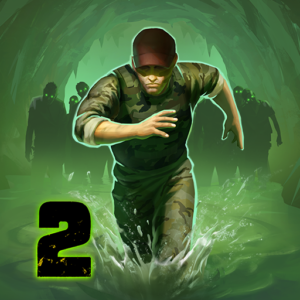Socratic by Google
In order to learn more about a variety of subjects, one of the tools that I use is the Socratic app, which has become their greatest buddy as they learn more about topics that I either don’t remember or didn’t know about prior to completing certain college classes. Here’s my Socratic app accessibility evaluation, as well as information on how to utilize the Socratic app for learning purposes.
Socratic by Google encourages teachers to shift away from busywork and drill-and-kill homework and toward tasks that require students to display their thinking skills and demonstrate their understanding. Allow students to go over their work and discuss the process they used in small groups after they have finished. Individuals can be sent challenge questions to propel them forward, or you can utilize the app to review previous topics or provide remediation for students who require additional assistance. Alternatively, instruct students to examine the resources that questions create and then utilize a program such as Flipgrid or Screencast-O-Matic to describe their reasoning for arriving at the solution.
As a result, teachers must add questions that will force students to demonstrate mastery of a subject; teachers who place emphasis on the process rather than the outcome will find this tool to be quite useful. Using this tool is completely optional. Students can benefit from the app’s additional support and in-depth explanations, which will help to cement and enhance their learning if used properly.
Description
Socratic by Google is an app that searches the web for resources, explanations, and solutions. To students’ queries using artificial intelligence technology. Students can speak, write in, or take a picture of a typed or handwritten query. And they will obtain several resources including explanations. As well as solutions almost immediately after doing so. Answers are displayed on one or more pages that include videos from YouTube and Khan Academy. Information from Wikipedia, photos, and other media, among other things.
When students search for math questions. They are frequently presented with step-by-step instructions (along with pointers). Students, on the other hand, may receive findings that are completely irrelevant. When you search for the problem “What is 8×4”, for example. You will find sites that include the procedures to arrive at the correct solution. As well as a number of connections to unrelated material. Science, English-language arts, and social studies are all included in this curriculum.
The results, on the other hand, may not be as precise or comprehensive as those obtained using mathematics. Students may discover that not every answer in Socratic by Google is valuable or correct. And that not every question is easily understandable or accessible by them. Kids will need to understand when it is effective and how to check information using a variety of resources. As well as their own critical-thinking abilities.
Is It Good for Learning?
Socratic by Google, when used appropriately, encourages pupils to think about. How they can solve a problem or answer a question rather than giving up in frustration. When faced with a difficult task. The cards that are presented with each question serve as an automatic resource playlist,. Providing students with opportunity to gain a deeper comprehension of the material. Students may receive responses in the form of text, graphics, video, audio,. Or a combination of all four formats, depending on the question. Offering rapid support for students with a variety of learning preferences.
Students will like that the app makes a standard Google search less overwhelmi. B by limiting down results to to a handful of the most relevant ones. Whether they’re studying class concepts, verifying their work. Or getting a head start on future themes.
Some will claim that apps like these encourage cheating, and it’s completely likely. That students will take advantage of the opportunity to discover answers. Without having to put in the effort to learn the material. Students who are motivated, on the other hand, can find various ways to cheat if they are so inclined. Although this is true, it should not deter educators from advocating the use of tools. Like these to fill in comprehension gaps and grasp difficult ideas in their classes.
You’ll have to educate children how to apply the knowledge. They discover to further their comprehension. This will not be an obvious process for many of them. Furthermore. Because the questions may provide wrong responses or data from untrustworthy sources. It is critical to emphasize the need of employing common sense and good judgment when utilizing the tool.













Reviews
There are no reviews yet.